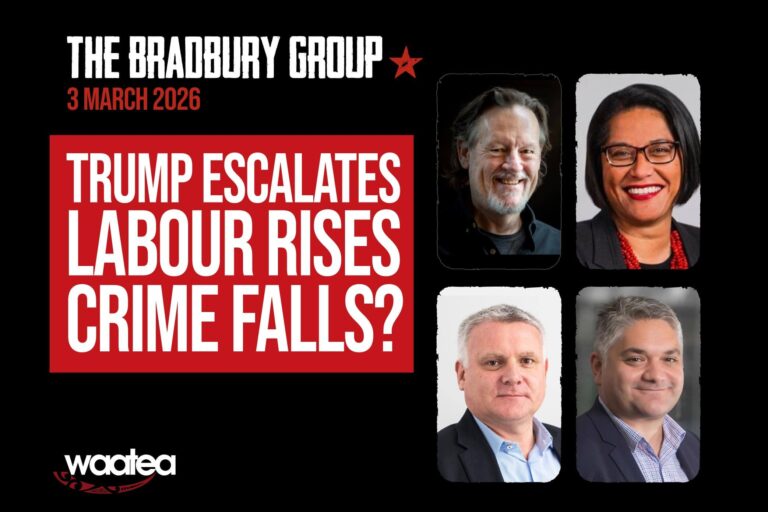America’s To Lose: But the Outcome of “The Great Game” Remains Unclear.
THE GREAT GEOPOLITICAL CHALLENGE confronting the United States is that the Americas are separated from Eurasia by two broad oceans. Since the end of the Second World War, from which it emerged as the undisputed global hegemon, this geopolitical challenge has required the American government to transform Western Europe into a military, economic and cultural appendage of the United States.
Had the United States failed to effect this transformation, its own economy would have faltered, and capitalism, as a global system, could very easily have collapsed. Making the nations of Western Europe part and parcel of the American economy – principally as borrowers of American dollars and consumers of American exports – was crucial to preserving the American people’s economic prosperity and, hence, the USA’s political stability.
Had the USA not launched the “Marshall Plan” for European recovery, and intervened aggressively in the domestic politics of France and Italy, it is practically certain that the formidable Communist Parties of those two countries would have come to power, bringing the whole of Europe under the tutelage of the Soviet Union.
And Great Britain?
The United States had taken a majority shareholding in Great Britain Ltd during the darkest days of 1940. It return for the US President, Franklin D. Roosevelt, keeping his country in the war, Winston Churchill, was forced to set in motion the dissolution of the British Empire.
It is likely Churchill pardoned himself for this capitulation to necessity with fairy tales about a “special relationship” between the USA and Great Britain. No doubt he truly believed that in the unfolding history of the English-speaking peoples, Britain would be seen to have played the role of Ancient Greece to America’s Ancient Rome: peacefully blending its old empire into something new and altogether larger and more powerful.
The Americans would not have disagreed with the last bit, but they were never foolish enough to believe in the rest. Since becoming the world’s banker during the First World War, US capitalism had been aching to get its hands on the protected markets and resources of the geographically vast British Empire. The only thing the Americans were willing to share with the British was the English language.
As the Brits found out to their cost during the Suez Crisis of 1956, the sun had well and truly set on the British Empire. It had become an expensive joke. The British lion was stuffed.
Which still left the USA facing the problem of Eurasia. The Soviet Union and China might be broken and destitute after years of oppression and war, but beneath the graves and the rubble lay resources that could make them rich enough to one day compete with the United States for the rest of the world’s allegiance.
The geopolitical planners in Washington understood that American hegemony could only be sustained by making damn sure that neither Russia nor China ever arrived at that strategically critical position. What they were in the process of doing to the British Empire, they were determined, eventually, to do to the Russians and the Chinese: break them into pieces and transfer their markets and resources into the safekeeping of Uncle Sam.
By 1991 it looked as though America’s geopoliticians had done it. The Soviet Union had collapsed, Eastern Europe was theirs for the taking, and the People’s Republic of China had allowed itself to be transformed into a giant American factory. No wonder a US State Department analyst, Francis Fukuyama, had jubilantly penned a paper entitled “The End of History”.
But, the clever boys and girls in the State Department, and their moronic friends in the military and the CIA, had not factored in the extraordinary historical resilience of the Russians and the Chinese. Henry Ford had told his fellow Americans that “history is bunk” – and they had believed him. Drunk on the heady brew of their new “unipolar world”, US geopoliticians had called their global victory too soon. Eventually, after twenty years of getting its ass kicked in the Middle East, the United States had to confront the inconvenient truth that Eurasia wasn’t beaten yet – not by a long shot.
Inevitably, Russia and China had brought forth leaders in possession of the requisite political steel to exploit the Americans’ mistaken assumption that they could command the rest of the world to dance – and it would dance. Only when it was too late did Washington understand that Moscow and Beijing has music of their own, and dance-steps with which America was entirely unfamiliar. In the global edition of Dancing With The Stars, Vladimir Putin and Xi Jinping made Bush, Obama, Trump and Biden look like flat-footed rubes.
Snapping out of their premature imperial bender, the Americans did their best to re-energise the Drang nach Osten (Drive to the East) that had been set in motion by the Soviet Union’s collapse. The United States’ geopolitical catspaw, Nato, had been expanded all the way to the borders of the Russian Federation. Washington and its surrogates were stirring up trouble in China’s western border province of Xinjiang. Bait the Bear and Poke the Dragon had become the only games in town.
But these were no sand-blasted Middle-eastern dictators they were facing. Russia and China were nuclear powers. Getting rid of Putin and Xi would require something the Americans have never been over-endowed with – guile.
Regardless, they laid a trap for Putin, baited it with Ukraine, and waited. If Russia took the bait, the United States and Nato would unleash, as one pundit put it: “an economic and cultural Barbarossa”. And if Xi was foolish enough to come to Putin’s aid, then they were quite willing to declare full-scale economic war on the People’s Republic as well. A geopolitical twofer!
Except, the imposition of crippling sanctions cuts both ways. The USA is pinning all its hopes of finally subduing Eurasia on both Russia and China succumbing to the impact of the West’s economic warfare before it blows back into Europe, Africa, the Middle East, South Asia and, ultimately, and perhaps a lot faster than Washington anticipates, into America itself.
The Russian Federation has released a map of the world showing all those nations who have declared themselves “Enemies of Russia” by joining the economic blockade. The most striking thing about the map is that it identifies not only Putin’s (and potentially Xi’s) enemies, but also those parts of the world inhabited by white people.
If Eurasia survives the sanctions; and if, in the process, it creates a new economic order from which the great American hegemon and its hangers-on are excluded; then it will not be the USA that wins the Great Game, it will be Russia and China, the masters of Eurasia.
Because, as the inventor of geopolitics, Sir Halford Mackinder (1861-1947) wrote more than a century ago:
“Who rules East Europe commands the Heartland; [Russia] Who rules the Heartland commands the World Island; [Eurasia plus Africa] Who rules the World Island commands the World.”







While Chris has interesting opinions based on observable events he has failed to understand that sound interpretation of scripture has already told us the future. In a condensed form it involves increased disasters, a church-state combination forcing worship due to men’s hearts failing them for fear & destruction of the Earth by fire. There is good news also although I suspect the readers have no time for any of this.
Lots of folk here seem to feel that if populations aren’t growing a nation will decline / collapse. At some point it can’t be an advantage to have an ever increasing population. China thought they had reached that point years ago and acted accordingly. Not without reason.
I’m a climate sceptic in re CO2 but it is a moot argument because the fossil fuels must run out some day in the lifetime of people alive now. Te world population can’t continue to expand indefinitely and probably must decline radically without fossil fuels.
In the timeframe of projected decline of Russia and China suggested here I contend that a growing population will be a huge burden on a nation not a necessary condition for success.
D J S
Good point DJS, as fossil fuels run down tilling the fields will become an issue. We may however have to replace machines with people. Paradoxes in all directions.
@David I agree that you cannot have an ever expanding population and a radical decline with declining fossil fuels is very much on the cards.
John Grey had a chapter on this is Straw Dogs years ago, but it has been said by many commentators for long enough.
https://www.amazon.com/Straw-Dogs-Thoughts-Humans-Animals/dp/0374270937)
The issues around demographic collapse cited above are not wistful feelings about a desire for perpetual growth, but a realpolitik view of what happens to a country when the elderly population dwarfs the younger more productive population, when economic social and political systems predicated on growth are forced to change reactively and abruptly, and the geopolitical and trade advantages/disadvantages between growth countries vs those that are static or declining in their wider context of development level and access to capital and technology.
“China thought they had reached that point years ago and acted accordingly. Not without reason.”
No China ‘reacted’ with the one-child policy. Then decades later it reacted in the opposite direction increasing to two and then three-child while quietly increasing coercion for women to have babies. This is not foresight it is a system with a talent for failed social engineering experiments.
Ha Andrew, the follow up, yet to read but my daughter said its good.
But enough of this which imperialist will win thing. It is no more than the accompaniment to climate collapse. Only a socialist revolution can defeat imperialism and the capitalist system taking us all to destruction and return to the commune based on collective ownership and social equality in harmony with nature.
Yes and no Dave… Yes its an imperialist battle. No, socialism (in the Marxist vein) is not the answer
Add to the Great Game, the Ruble backed by gold, and the fragility of the petro dollar. https://thewire.in/economy/vladimir-putin-ruble-gold-dollar
“but also those parts of the world inhabited by white people.”
A lazy anachronistic cliche?
IMO race or ethnicity is no longer an effective mass-mobilising ploy in the west. Western elites are far less ethnically homogenous that Russian elites (whites we don’t care about) and Chinese elites.
Xi doesn’t win many popularity contests in other Asian countries either. Indeed the CCP seem to be increasingly dependant on Han ethno-nationalism to retain control and domestic cultural propaganda is jaw droppingly racist towards both Americans and Japanese.
I’d look less to Huntingdon’s “Clash of Civilisations” and fashionable schools of Critical Theory and more to Klare’s ‘Resource Wars’ and neoliberal systems of control in banking, investment, resources and trade.
IMO neoliberal elites really don’t care what you look like so long as you buy into their worldview.
Theres one thing missing from this analysis Chris: energy, who has it, who needs it, and who controls it.
You are right there is a logic to US naval superiority on the oceans that is to control the movement of energy, therefore rule.
If the US owns chunks of production in China and elsewhere at a cheaper cost than producing in USA it matters not to US capitalism how much they impoverish their own people. To keep the money flowing they invest in the military to police their assets worldwide.
The most important flow for the US to control is energy. Having Russia as the largest exporter bypass sealanes to India, China, Europe, thats a threat. If the US lose the proxy war in Ukraine and the real sanction war we move into a brave new world.
It gets even more interesting when you discover that the USA is now a net importer of energy. The fracking boom is past peak, oil sands were an energy arbitrage, conventional heavy crude now in decline. This ups tha ante to control anybody else’s energy. Fun times.
Interesting essay, agree that the nations are reorganising towards a post-Bretton Woods, post-globalisation towards a new multipolar world. The 2020s will be a time of great upheaval and flux with energy, food and fertiliser shortages are already baked in and upstream of social and political unrest. However for better or worse I think the US and to a lesser extent it’s allies are holding most of the cards.
Russia and China are both facing demographic collapse and neither are fond of immigration.
Another issue is trade routes. Arguably global maritime trade exists in its current form because the US navy facilitates it. China is dependant on energy imports to run industry and keep the lights on, ditto for commodities and manufacturing. US, Japan, S Korea, India, Australia, even Singapore all have the ability to choke off Chinese shipping routes. The pipeline infrastructure capacity does not yet exist for Russia to support China’s energy needs (which will take years and billions to build). Russia’s own shipping has to sail past past EU and NATO countries and if Russian pipelines to the EU and Black Sea get shut down the infrastructure will degrade, it’s not a simple matter of turning it off and on again. The US itself is rapidly re-industrialising, so expect it’s dependance on foreign manufacturing to decline.
The US is probably capable of becoming regionally self sufficient (labour, energy, food, manufacturing etc) in the face of collapsing globalisation. It’s highly unlikely that Europe and China can and I don’t see Russia having a great future without strong trade with Europe. Association between Russia and China is a marriage of convenience with Russia unlikely to accept the position of junior partner in any new world order.
The wildcard is India, which IMO, short of a war with Pakistan, could emerge as a global power and potential king or queen maker in any great power struggle.
You are right about the complexity Tui. I suspect that the US prompted the proxy war in Ukraine to prevent Eurasian integration.
I like the concept of the US becoming a self sufficient continental power, however they face a generation of skill and infrastructure rebuild with scarce energy reserves. Capital might also be an issue, no foreigner will invest there now that they have seen the US confiscate Venezuelan, Lybian, Iranian, and now Russian assets.
Hopefully this is the great wake-up-call for Americans, a great people.
I think Putin sees events in Ukraine, since 2014, to Westernize Ukraine, as a first step in moves to dismember Russia. The invasion is a last ditch attempt to neutralize Ukraine, and does not represent a threat to Europe (as some are claiming). However, I don’t think he expected the opposition Russia is receiving from the Ukranians.
You started off well Chris but lost the plot halfway through.
You’re right in one respect; America is and will remain the only superpower simply because of geography. Each of its potential opponents has deeply flawed geographies which forever limits their capacity to build their economies, and project power and defend themselves.
But claiming its America’s fault that Putin has invaded Ukraine is beyond bizarre. It’s not as if this is his first attempt to takeover minor states that border Russia, is it? The man is a maniac and surely even you must recognize that. To get your thinking straight I suggest you travel more to hear the stories of the old people in Eastern Europe who lived under the heel of Russia after WW2 and so understand why they have dread of it happening again and why they will fight to prevent it.
It would also be good for you to travel in the USA in order to understand them. They’re a pleasant but parochial bunch; most not having ever held a passport. US politics is mostly about them – internal conflicts that sometimes spill out into other countries (like fighting Apartheid was really for them about the internal US race based politics. They project! LOL).
The real problem with the Pax Americana is, because like you say, they knocked the old empires off their pedestals, but then didn’t provide a meaningful replacement, so nearly all those former colonies became despotic basket cases run by indigenous thugs, and the lives of their citizens became vastly worse than under the ‘evil’ of colonialism. Americans like to stay at home and have little knowledge of much outside their own borders. This isolationist thread in their culture runs right back to their Founding Fathers.
One last thing – both Russia and China are destined to collapse in the next 20 to 30 years, not because the US beat them but because they’ve beaten themselves. Both face demographic collapse thanks to decades of failing to reproduce. If you’re young and have a marketable skill in Russia, you leave. In China the population is expected to half by 2050/60 thanks to the history of their one-child policy and the disinclination of middle class Chinese women to have more than one child. Russia has a GDP smaller than Texas and China’s economic system is a façade that will crack like a Ming vase, given a nudge.
Andrew, you are right that China and Russia will collapse, but for different reasons. Both will remain immensely powerful, but like Europe and Japan they are both in demograhic decline, made more so in China by the one child policy.
Demographics tends to lead economics, most people listen first to economists. If you wish to gain from long term trends check out the demographics. They dont indicate a Chinese, Indian or US century, look to Nigeria and Malaysia as dynamic youthful countries in the next half century.
@NickJ Agree on demographics re potential so long as other economic factors align (resources, manufacturing, technology, urbanisation etc).
Curious why you count out India? Notwithstanding obvious issues such as corruption and potential conflict with Pakistan.
Tui, Indian demographics show decline in fertility and that will be followed by aging. Not as rapid as China but will happen.
@NicKJ There is a decline in the under 10s, but teens are still the largest cohort and the average age is mid-20s. India the second most populous country and well located for maritime trade between Europe and Asia (slightly younger than Malaysia).
https://www.populationpyramid.net/india/2020/
Sure ageing will happen (absent catastrophic events) but that is a few decades away and India gets to watch, learn and take advantage of most western nations and in particular China, grappling with the social and economic problems population ageing throws up in THIS decade.
Sorry Nick – China ended its one child policy in 2016. Care to reconsider your opinion?
AOM, damage is done, never say it can’t be revzrsed though.
AOM yes families can now have 3 children and access to abortion is being removed. Expect all kinds of incentives and coercion for women to have more babies.
However as Nick J says, damage is done, aside from an established culture of ‘one child’ most families cannot afford more children due to cost of living and housing and that each worker (thanks to one child) has to support 2 parents and 4 grandparents into retirement (double that if only one parent is working). Compound that with most intergenerational wealth being tied up in property, a ponzi scheme that is currently collapsing, 30 million ‘excess’ males due to what is not too hyperbolic to call a female infant genocide and the average age is mid-40s so the average chinese person is looking more towards retirement than starting a family. The society will soon be supporting more far more elderly people than workers to provide.
Then even if you wave a magic wand and every chinese family had an extra child tomorrow, that is still 15-20 years of effort going into raising that generation and 20-30 years before those children make an impact in the workforce. Realistically it will take much, much longer to recover.
Andrew, find a book called The Power of Geography by Tim Marshall and read chapter one about Russia. All will be revealed.
Thanks
This is also good: https://www.goodreads.com/book/show/25205438-prisoners-of-geography
Ha Andrew, the follow up, yet to read but my daughter said its good.
Let’s make a comparison….
Chris Trotter…..Erudite
Andrew….. ignorant
Is that all you’ve got?
Really?
Can’t begin to tell you how grateful I am for your scholarly contributions.
I love your attention to historical context, and geographical for that matter.
“The International Community”is indeed a white person’s club, with a bit of tokenism thrown in .
I hope we are seeing the last of the last Empire .